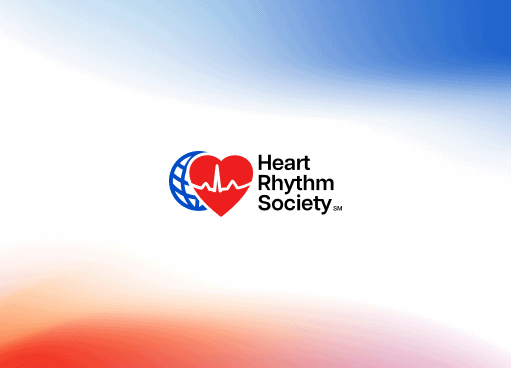Collaborative Project Will Promote Equitable Care for AFib Patients by Optimizing Management of Often Undertreated Disease
WASHINGTON, DC — The American College of Cardiology and Heart Rhythm Society, in collaboration with the Bristol Myers Squibb-Pfizer Alliance, are launching an innovative project to improve management of atrial fibrillation in underserved communities. TRANSFORM: Atrial Fibrillation Quality Initiative (TRANSFORM: AF) will give clinicians and health systems tools to improve adoption of guideline-directed medical therapy in targeted patient populations by putting the right resources in front of the right people at the right time to drive measurable changes in performance.
Atrial fibrillation (AFib) is the most common cardiac arrhythmia worldwide and a leading cause of stroke, heart failure, cardiovascular morbidity and sudden death. When AFib remains untreated, there is a fivefold higher risk of developing stroke and a twofold higher risk of death from stroke; however, up to one-third of patients experience no symptoms and are unaware they have AFib.
“Early and effective treatment is critical for appropriate management of AFib, but some communities are disproportionately impacted by this disease because of low rates of early intervention,” said James Januzzi, MD, TRANSFORM AF co-chair, ACC Board of Trustees member and director of the Dennis and Marilyn Barry Fellowship in Cardiology Research at Massachusetts General Hospital (MGH). “Through TRANSFORM: AF, we’re giving clinicians tools to better understand AFib risks to improve treatment decisions and monitoring for future complications in a way that meets vulnerable patients where they are.”
TRANSFORM is an 18-month program that will provide a comprehensive set of tools and resources for appropriately managing atrial fibrillation by leveraging telehealth, monitoring tools and virtual care. Lessons learned from the project will help to ensure that telehealth and virtual care improve access to equitable healthcare, rather than exacerbate existing inequalities in our healthcare system.
“TRANSFORM AF provides us a unique opportunity to use telemedicine and artificial intelligence to better identify, risk stratify and treat the underserved vulnerable population, enabling collaborative and patient-centered care,” said Jagmeet Singh MD PhD, TRANSFORM AF co-chair, member of the HRS Governance Committee and founding director of the Resynchronization and Advanced Cardiac Therapeutics Program at MGH.
The program will be overseen and driven by the clinical leadership of ACC and HRS, along with the ACC’s Taskforce on Health Equity and HRS’s Digital Health Committee. The groups will initially conduct a baseline assessment with support from HealthReveal, a leading clinical artificial intelligence company, to identify high-risk patient populations from underserved communities experiencing economic disparities and barriers to care within selected regions and systems of focus.
Assessment findings will inform the most effective tools and educational interventions to address identified gaps in care, including patient education tutorials, quality improvement clinician toolkits, digital consumer health monitoring devices and clinician education. Through the alliance, HealthReveal will recommend life-saving patient care interventions to increase physicians’ adherence to guideline- directed medical therapy, preempt future adverse cardiovascular events and improve patient outcomes.
This initiative is the latest under the TRANSFORM umbrella. ACC introduced TRANSFORM as a new kind of quality research program aimed to improve health care by transforming the quality of care across the multi-faceted areas of cardiovascular disease. TRANSFORM programs leverage clinical registry data, office-based interventions and partnerships to include the pharmaceutical and medical device industry, health plans, employers, clinicians and patients.
HRS quality improvement (QI) efforts support that vision through our Optimize Outcomes initiatives that…
- are led by heart rhythm specialists committed to improved care and outcomes
- engage the global heart rhythm community to address gaps and disparities throughout the world
- leverage the diversity, strength and unity of the HRS membership
- foster collaboration, communication and care coordination between all clinicians that treat heart rhythm patients
- concentrate on systems-based improvements, with the potential to result in the largest impact
- evolve with the most recent science and knowledge
- focus on the patient
####
About the American College of Cardiology
The American College of Cardiology envisions a world where innovation and knowledge optimize cardiovascular care and outcomes. As the professional home for the entire cardiovascular care team, the mission of the College and its 54,000 members is to transform cardiovascular care and to improve heart health. The ACC bestows credentials upon cardiovascular professionals who meet stringent qualifications and leads in the formation of health policy, standards and guidelines. The College also provides professional medical education, disseminates cardiovascular research through its world-renowned JACC Journals, operates national registries to measure and improve care, and offers cardiovascular accreditation to hospitals and institutions. For more, visit acc.org.
About the Heart Rhythm Society
The Heart Rhythm Society is the international leader in science, education, and advocacy for cardiac arrhythmia professionals and patients and is the primary information resource on heart rhythm disorders. Its mission is to improve the care of patients by promoting research, education, and optimal health care policies and standards. Incorporated in 1979 and based in Washington, D.C., it has a membership of more than 7,000 heart rhythm professionals in more than 70 countries around the world. For more information, visit HRSonline.org.
Press Contact
- Name: Nicole Napoli
- Email: [email protected]
- Phone:
Related Posts

Press Releases
Heart Rhythm 2025 Showcases New Advancements in Emerging Pulsed Field Ablation Technology
April 27, 2025

Press Releases
New Study Finds GLP-1 Receptor Agonists May Reduce Atrial Fibrillation-Related Events in Patients with Obesity
April 26, 2025

Press Releases
Late-Breaking Clinical Trials at Heart Rhythm 2025 Showcase Promising Outcomes for Left Bundle Branch Area Pacing
April 25, 2025